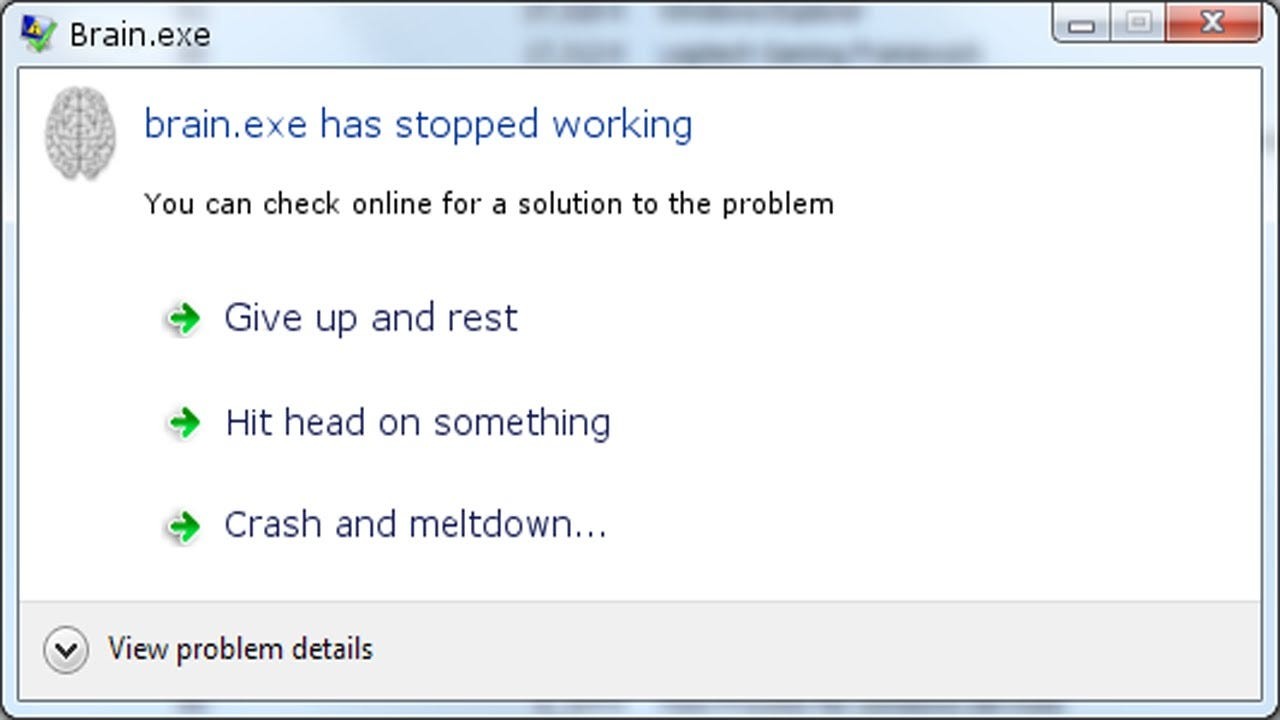We’ve all been there. Staring blankly at the screen, the cursor blinking mockingly as we struggle to string together a coherent thought. It feels like “brain.exe” has stopped responding, leaving us frustrated and feeling inadequate. But just like a computer, our brains aren’t designed to run at 100% capacity all the time. Understanding why your mental CPU needs a break is crucial for productivity and well-being.
Why Your Brain Might Feel Like a Blue Screen of Death
Numerous factors contribute to mental fatigue and decreased cognitive function. It’s not always a simple fix, and often, multiple elements combine to create the perfect storm of brain fog. Some common culprits include:
- Environmental Factors: A distracting or uncomfortable environment can significantly impact focus. Noise, temperature, and even lighting can overload your sensory input, making it difficult to concentrate. Think of it as too many programs running in the background, slowing down your processing speed.
- Mental State: Stress, anxiety, and lack of sleep are notorious for hindering cognitive function. These mental states consume valuable mental resources, leaving less available for tasks requiring focused attention. They’re like resource-intensive applications hogging your RAM.
- Overload: Just like a computer can crash from too many open tabs, our brains can become overwhelmed by juggling multiple tasks and responsibilities. This cognitive overload leads to decreased efficiency and increased error rates.
 The overwhelmed brain can feel like a computer struggling to keep up.
The overwhelmed brain can feel like a computer struggling to keep up.
Rebooting Your Mental Operating System
Recognizing the signs of mental fatigue is the first step towards recovery. Just as a computer needs a reboot, your brain benefits from periods of rest and rejuvenation. Consider these strategies:
- Prioritize Sleep: Sleep is essential for consolidating memories and clearing out mental clutter. Aim for 7-9 hours of quality sleep each night to allow your brain to perform necessary maintenance tasks. Think of it as defragmenting your hard drive.
- Mindfulness and Meditation: Practicing mindfulness and meditation can help quiet the mental chatter and reduce stress. These techniques are like closing unnecessary applications to free up mental resources.
- Breaks and Downtime: Regular breaks throughout the day are crucial for preventing burnout. Step away from your work, engage in a relaxing activity, or simply take a few deep breaths to refresh your mental state. Consider it a system restart.
Embracing the Occasional System Crash
It’s important to remember that occasional mental glitches are normal. Don’t beat yourself up when “brain.exe” throws an error message. Instead, focus on understanding the underlying causes and implementing strategies to improve your mental performance. Just like even the most advanced operating systems experience occasional hiccups, our brains need time to recover and recharge. Accepting these moments of mental downtime is key to maintaining long-term productivity and well-being. After all, even Windows needs a blue screen now and then.

